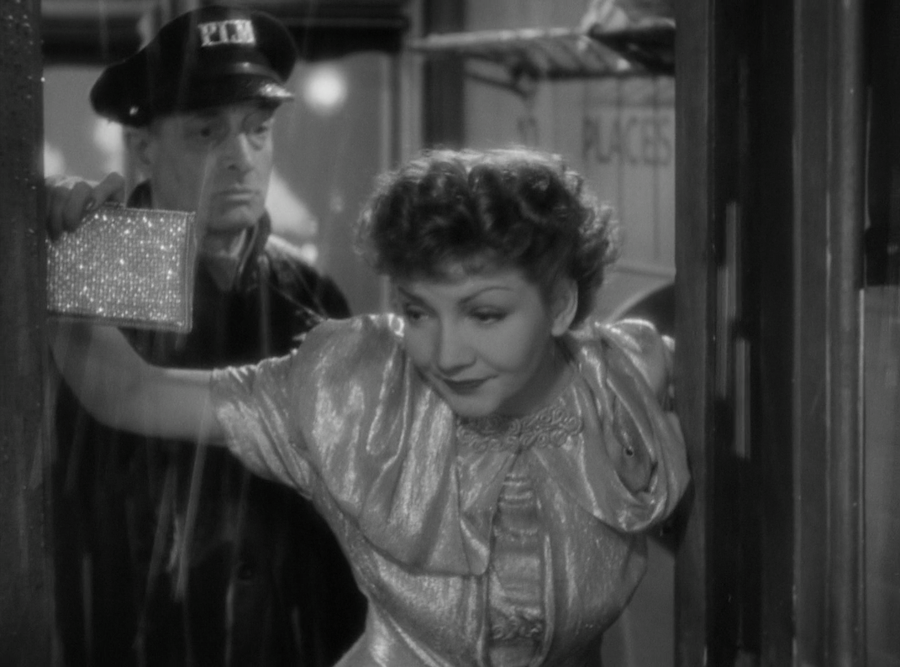If 1939 was “Hollywood's Greatest Year," it was a year of extravagance, spectacle, romance—and a little light on laughs. Of the outright, through-and-through comedies, only Ninotchka breaks into the year's usual high ranks; that film's screenwriters, Billy Wilder and Charles Brackett, had another, overlooked hit comedy in 1939, one that I hope is finally—having recently received the imprimatur of a spine number in the Criterion Collection—set to receive its due as being among the year’s best of any genre: Mitchell Leisen's Midnight.
While Leisen (“Lie-son,” by the way, not “Lee-son”) has been largely forgotten in the intervening decades—if you've heard of him, it's more likely due to the well-known screenwriters-turned-directors who complained that he butchered their work than an appreciation of his own—scholar James Harvey, who wrote the book on studio era romantic comedy, classed his 1930s work at Paramount alongside Ernst Lubitsch's. He is a varied director, though, jumping genres from war to noir to romance to musical to screwball across his career, but most at home among the intimacies of melodrama and romantic comedy. In whatever genre, he's a dab hand at letting in air, softening hard edges, and allowing his actors space to round out fuller, complex emotions from a script's generic gists. It's a judicious wit and relaxed elegance that—despite some screenwriters' ire—made him one of the most sought-after people in Hollywood in the 30s and 40s, both on- and off-screen, and led most of his actors to work with him repeatedly.
Midnight stars Claudette Colbert (in her first of four movies with Leisen) as Eve Peabody, an American chorine we meet being woken in a gold lamé evening gown by a Parisian train conductor, with little more to her name than a pawn ticket in a rhinestoned purse. She persuades Don Ameche’s Tibor Czerny, a principled prole taxi driver ("I'm a rich man! I need 40 francs a day and I make 40 francs.") to ferry her around to look for work in exchange for double fare when she lands a job—which she does not. Sparks, of course, have begun to fly as they make their tour of her nightclub auditions, but when he makes his move, she flees. She's too streetwise to settle for his enough-to-get-by-on love, and not the least ashamed of her gold digging: "you don't just fall into a tub of butter, you jump for it."
In her flight from Ameche, Colbert's anti-ingenue smuggles herself into a high-class party, but is sussed out and outwitted by a conniving John Barrymore. He, playing fairy godfather to her Cinderella, suborns her into a long con to break up his wife (Mary Astor) and her rich boytoy by seducing him. She'll need a Ritz suite and new gowns and very fresh hats to pass amongst the dukes and duchesses, of course, a butter pat from which to make that big jump. Meanwhile, Ameche enlists all the taxi drivers of Paris to help him find the one that got away, leading, inevitably, to a cascade of scheming, cover-ups, and revelations. It's the kind of convoluted, overworked setup we expect in a screwball, but Leisen’s touch pulls the picture back from the genre’s typical madcap into something breezier, and profoundly charming.
Midnight plays on 35mm Thursday and Friday at the Stanford Theatre, on a double bill with The Palm Beach Story.



